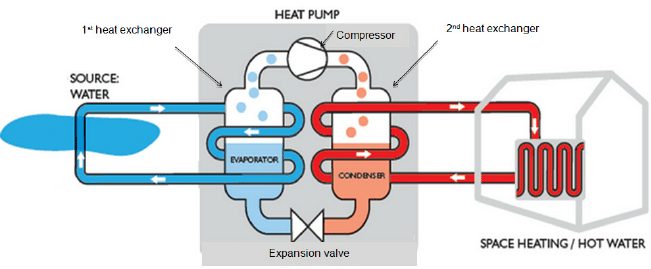What is a heat pump?
A heat pump is a device that transfers heat energy from one place to another. It can be used to heat or cool a space, depending on the needs of the home owner. A typical unit consists of an outdoor compressor and an indoor air handler. The compressor pumps refrigerant through the system, and the air handler blows air over the coils to either warm or cool the space, as needed. Heat pumps are very efficient and can save homeowners money on their energy bills.
Heat Pump FAQs Answered
How does a heat pump work?
Heat pumps are most effective in moderate climates where temperatures do not fluctuate too much throughout the year. In winter months, they work by moving heat from outdoors into your home; in summer months they do the reverse by removing heat from your home and releasing it outdoors.
How much does a heat pump cost?
They typically cost between $3,000 and $6,600 installed, although this cost can vary depending on factors such as size and location and brand selected. Costs can be impacted depending on whether the air-handler you have already installed in your home is compatible with a heat pump system or if it has to be upgraded. Some older model air handler systems cannot be upgraded with the component (module air handler coil) that is needed for a 2 phase heat pump HVAC system. Cost is also impacted by weather or not your system can work with the type of refrigerants needed for this type of house heating and cooling system to be efficient. As you can see , this isn’t as trivial an install as traditional HVAC units.
Heat pumps offer energy savings!
As energy costs continue to rise, many homeowners are looking for ways to cut their monthly expenses. For many building owners, the most significant benefit of heat pumps is a sizable reduction in monthly bills.
The average household spends more than $2,000 per year on energy bills according to one ENERGY STAR report, and about half of that money goes toward heating and cooling costs. By delivering heating and cooling more efficiently—and without combusting fossil fuels—heat pumps reduce energy consumption by an average of 20–40%. Below, we’ll explain how heat pumps save money, then provide a few suggestions for maximizing your savings.
What ways do heat pumps save money?
There are two primary ways that heat pump systems save homeowners money: through lower utility bills and eligible tax credits or rebates. Let’s take a closer look at each:
- ) Lower Utility Bills: Because they use less electricity than traditional HVAC systems, heat pump owners often see reduced monthly utility bills. In fact, depending on your climate zone and the efficiency of your system (measured in SEER or HSPF ratings), you could see savings of up to 50% compared to electric furnaces or baseboard heating.* Not only will you enjoy smaller utility bills with a new system – you may also be able qualify for special low-interest financing offers from utilities companies when you upgrade your old equipment. Check with your local provider for details.
- ) Tax Credits & Rebates: You may also be eligible for federal tax credits when you install a new high-efficiency Heat Pump System . In addition,, some states offer additional incentives such as rebates which can further offset the cost of purchase & installation . Be sure check with both state & federal guidelines prior making any final decisions so that receive maximum benefits available
Heat pump equipment and HVAC rebates
We Help You With All HVAC Rebates
In addition to our dedication to customer service, we strive to provide affordable rates to all our clients. Instead of having you find and fill out rebate paperwork for your HVAC Heat Pump equipment, our team takes care of that for you and will send you a rebate check within weeks of your service date.
Learn About Heat Pump Rebates Here


0 Comments